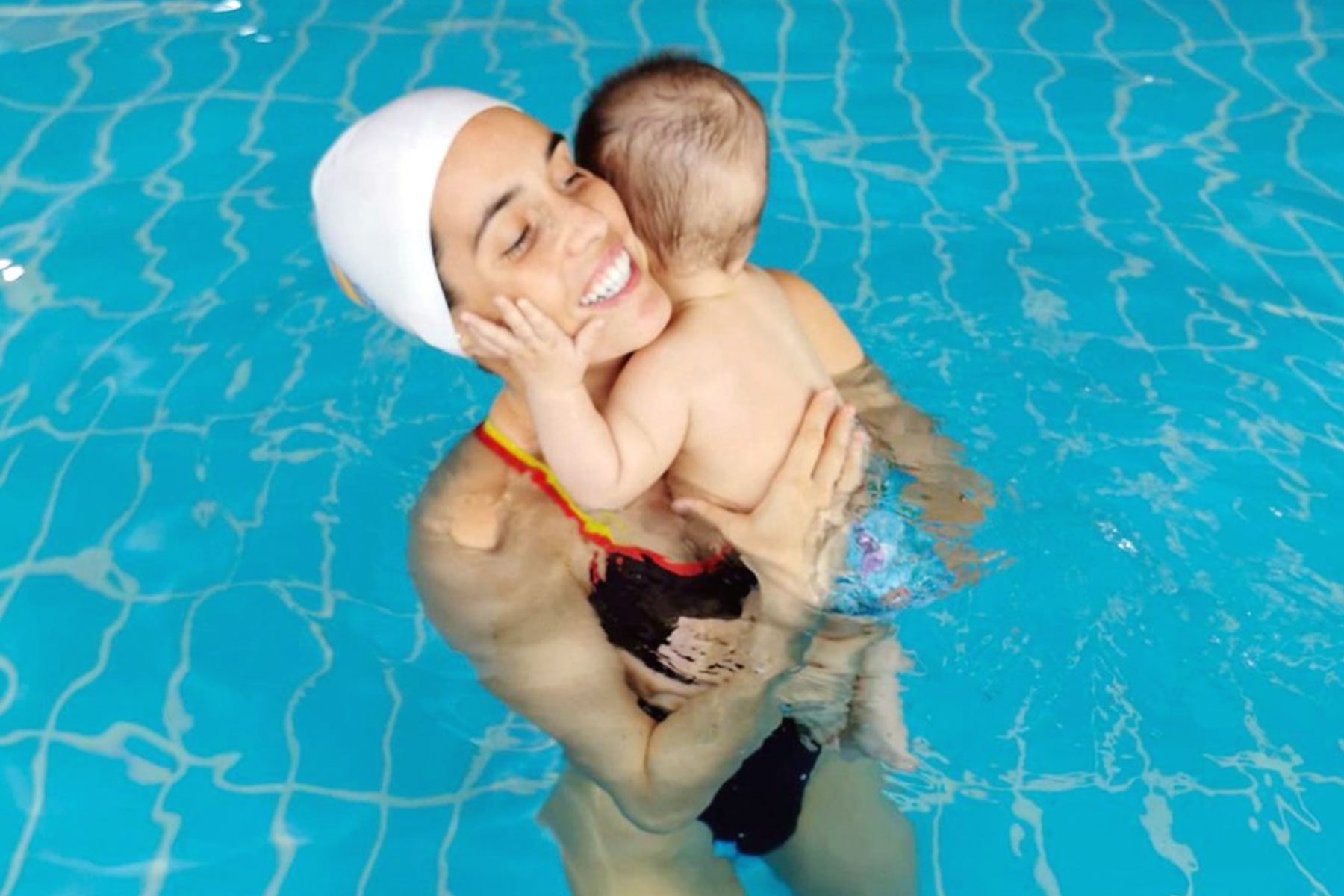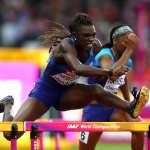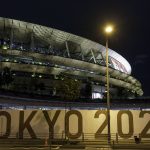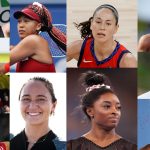A Spanish synchronized swimmer says she did not bring her baby to the Olympics in Tokyo because of rules set by the Japanese government that would have made it difficult for her family to be together despite the child’s need to breastfeed.
The swimmer, Ona Carbonell, this week posted a video on her Instagram account where she expressed disappointment about a set of rules that would have been in place if she had brought her nearly 1-year-old son, Kai, as initially intended after formally petitioning for the accommodations.
Speaking in Spanish, Carbonell said if her baby and the baby’s father had traveled to Tokyo, the two of them would have been required to stay in a separate hotel from Carbonell’s housing at the Olympic Village, even though she is breastfeeding. Neither Kai nor his father could leave their hotel room during the time that the family was in Tokyo, which was expected to be about 20 days.
Information about the hotel and the distance between their accommodations and the Olympic Village would not be available until the family arrived in Tokyo, according to Carbonell. And if she wanted to breastfeed Kai as she hoped to do, she would have to leave the Olympic Village each time. That would have posed a potential health risk to her teammates as they attempt to protect themselves from COVID-19 — several athletes from different sports and countries have tested positive in recent days for the disease.
The 31-year-old Carbonell, a two-time Olympic medalist who will compete in the sport now known as artistic swimming, called the decision not to bring Kai to the Olympics “a very complicated decision.” She plans to pump breast milk while she is in Tokyo, but she worries what that will mean for feedings in the future and whether Kai will latch to her breasts as easily when she is back.
“I hope this video and every other athlete who is struggling with the same problem will help normalize the situation,” she said in the Instagram video while nursing the baby.
Athletes have increasingly shared personal stories publicly about parenthood, talking more openly about the realities of child care needs, outdated industry expectations — including unfair rules for nursing parents. Several athletes who are breastfeeding their young children have shared publicly the challenges of communicating with Olympic officials about whether they could bring their children to Tokyo. At least some filed formal requests for accommodations but they said they were denied.
That led some athletes to share that news on social media, leading to public backlash. At the end of June, the International Olympic Committee that helps oversee the games reversed its position and announced nursing athletes could bring their infants to Tokyo.
At least two of those athletes, Canadian basketball player Kim Gaucher and American runner Aliphine Tuliamuk, have shared on their social media accounts that they brought their young children to Japan. But they have not shared additional details about the requirements around their visit.
Another athlete, American soccer player Alex Morgan, tweeted on June 30 about the ambiguity of accommodations being applicable “when necessary.” Morgan, who gave birth to a daughter in 2020, did not bring her to Tokyo.
In her Instagram post, Carbonell said despite the news reports that parents would be able to bring nursing babies, the “extremely drastic measures” around those accommodations made it impossible. She said she hoped her experience could improve conditions in the future for others.
A media spokesperson for the IOC earlier this month declined to comment on Morgan’s criticism or respond to a request for information about how many athletes had sought accommodations to bring their breastfeeding children.
A spokesperson for the IOC did not immediately respond to a request for comment on Carbonell’s experience. But in its initial July 15 statement about breastfeeding athletes, a spokesperson noted that entry into Japan is the responsibility of the Japanese government and “the current situation of the pandemic requires a very significant reduction in the numbers of accredited participants who do not have essential and operational responsibilities.”
“We are very pleased to hear that the Tokyo 2020 Organising Committee has found a special solution regarding the entry to Japan for mothers who are breastfeeding and their young children,” the spokesperson added.
Jaime Schultz, a professor of kinesiology at Penn State University and the author of “Women’s Sports: What Everyone Needs to Know,” said in an email that the recent experiences of these elite athletes highlights the importance of having more mothers — and more athletes who are mothers — involved in decision-making processes that consider the logistics of accommodating parents who breastfeed or need their children nearby.
“If nothing else, these controversies emphasize the importance of diverse experiences and opinions in creating and adapting policy,” she said.







